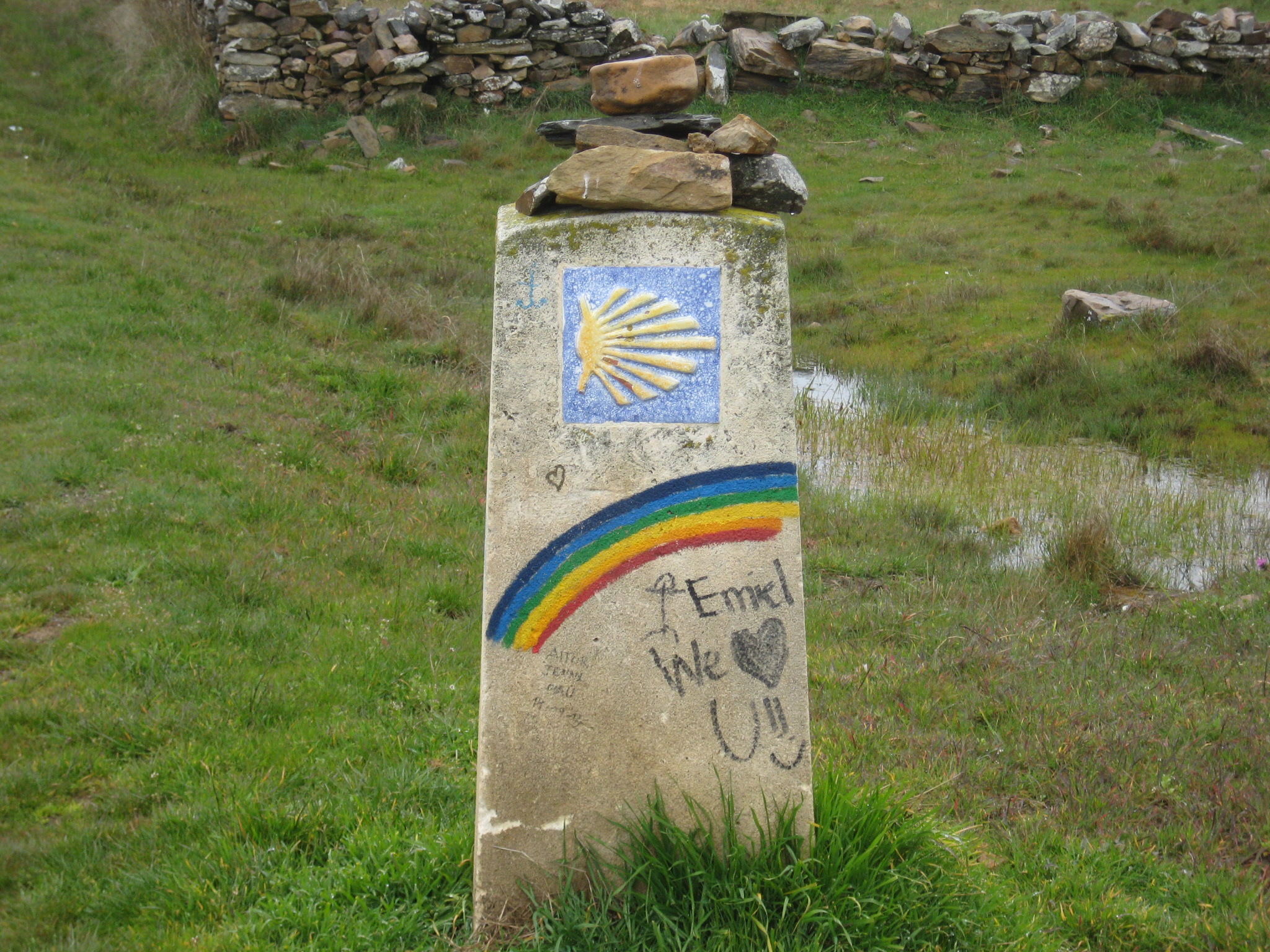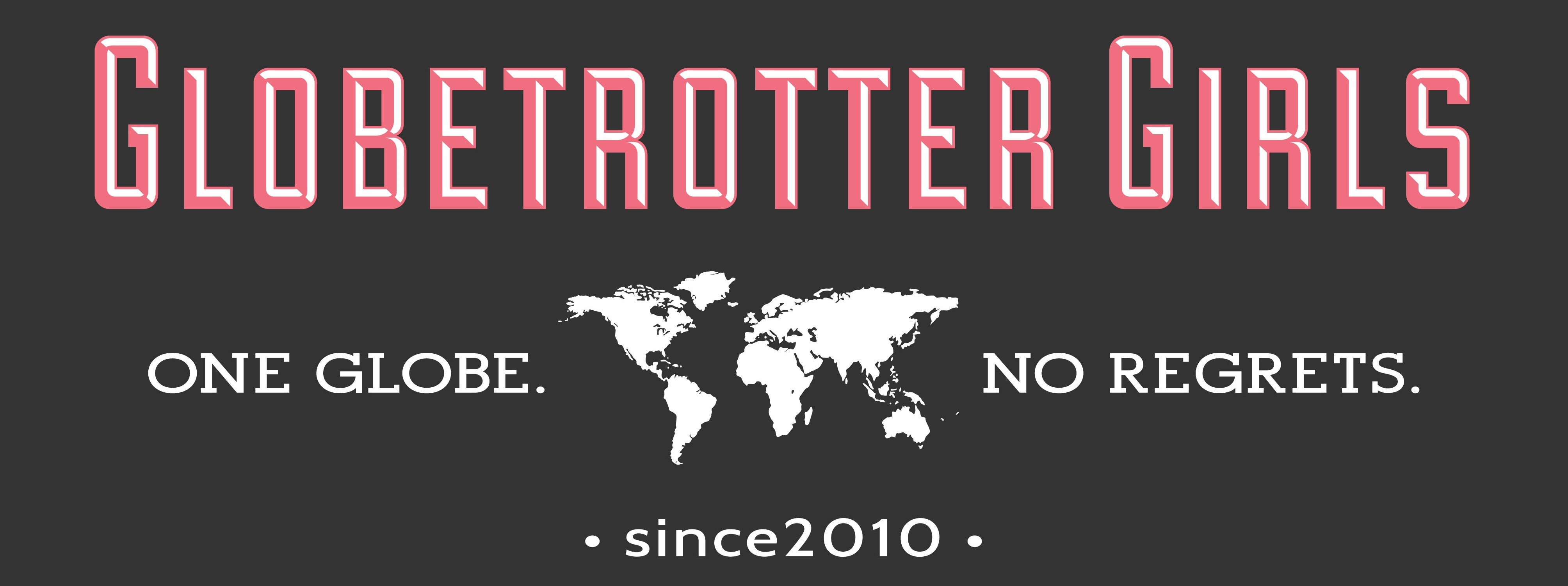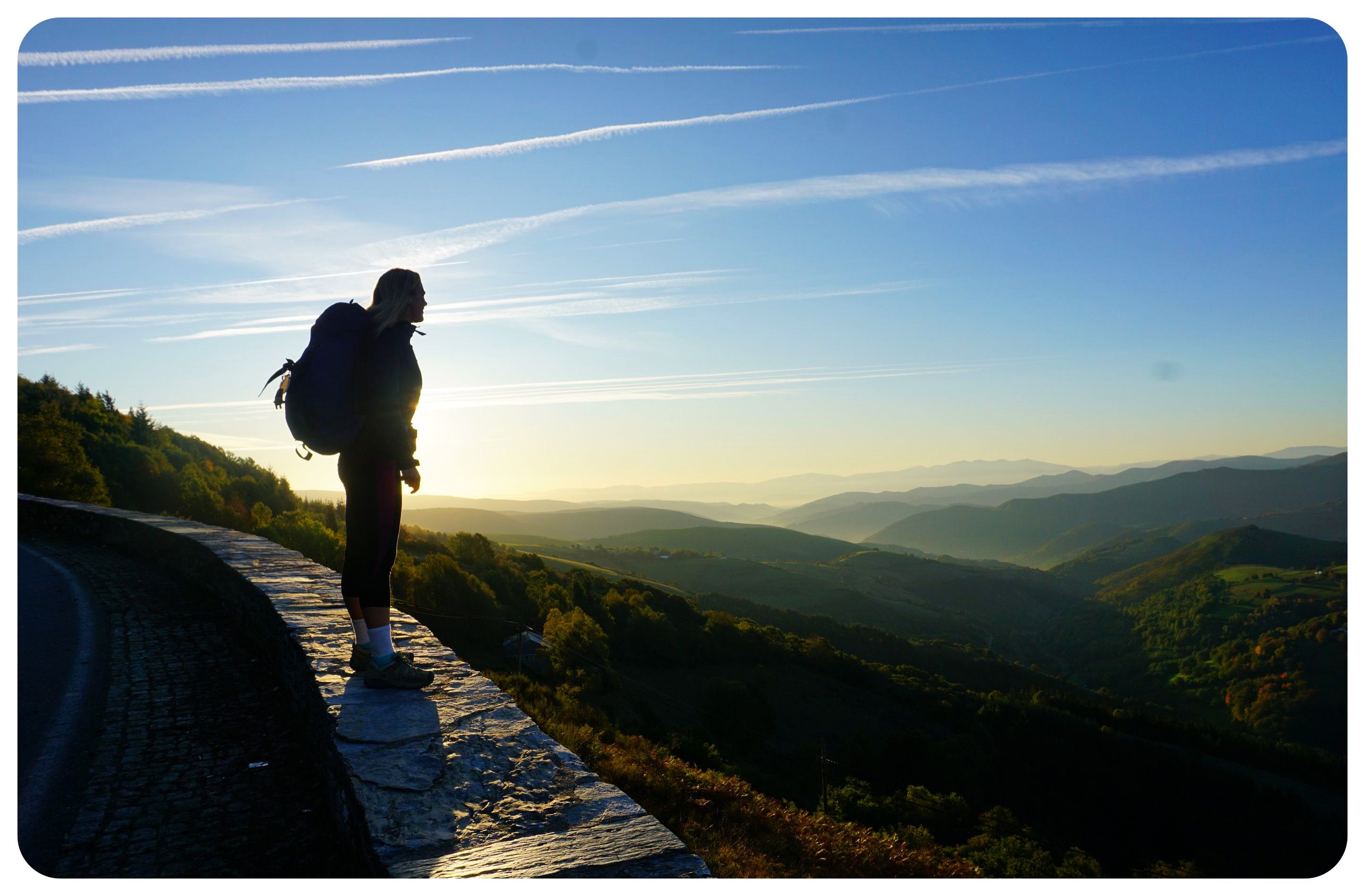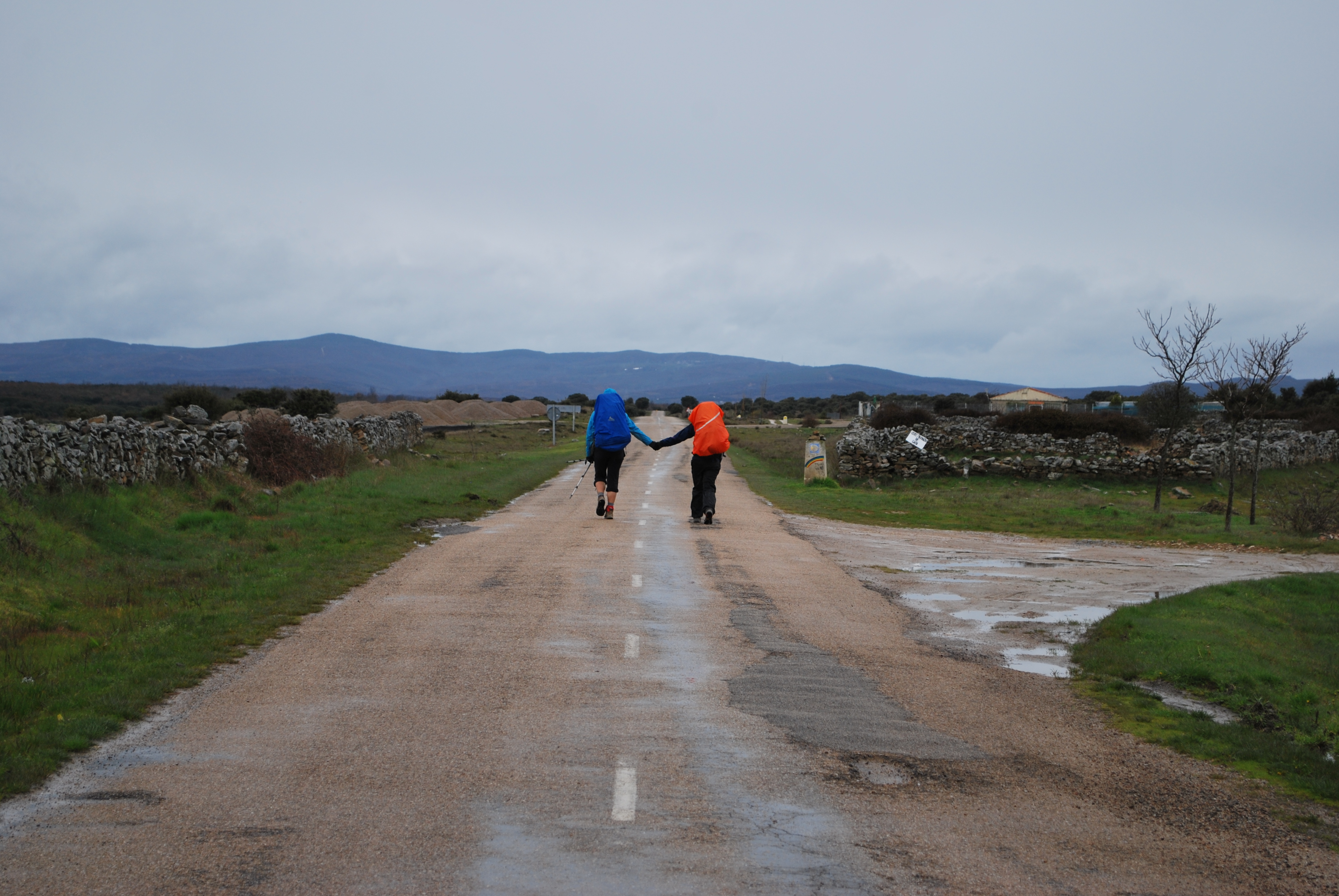Last Updated on April 28, 2021
 Welcome to our latest guest post from the LGBT travel community. Maria Stevens is a story-teller, volunteer laborer, and an experience junkie. In her moreconventional life, she is a movement and flexibility specialist, personal trainer, and blogger on nutrition and fitness. She was raised in Seattle and received a B.A. in Philosophy from Yale University in 2006. Most of her post-collegiate life has been spent independently wandering on a shoestring budget, observing the impact of the 2008 economic crisis, and envisioning a future in which access is preferred to ownership, and community and cooperation are prioritized. Check out her travel blog for more of her adventures.
Welcome to our latest guest post from the LGBT travel community. Maria Stevens is a story-teller, volunteer laborer, and an experience junkie. In her moreconventional life, she is a movement and flexibility specialist, personal trainer, and blogger on nutrition and fitness. She was raised in Seattle and received a B.A. in Philosophy from Yale University in 2006. Most of her post-collegiate life has been spent independently wandering on a shoestring budget, observing the impact of the 2008 economic crisis, and envisioning a future in which access is preferred to ownership, and community and cooperation are prioritized. Check out her travel blog for more of her adventures.
Travel is the greatest of all teachers, but this is often far beyond the lessons you knowingly spread when you return home and speak exuberantly about all you have learned. The lessons you have taught others while abroad are often overlooked in favor of those you share with your own people about the world at large. While all travelers are ambassadors for their country and culture, as an LGBT traveler, you are a representative of an oft-hidden group of people who rely on exposure to their community in order to gain worldwide acceptance.
On the Camino de Santiago – no sharing a bed for love or budget
Let’s say you and your girlfriend, the lovely Katie, travel on $10 a day, ($3,650 per year) is an exercise in frugality. It teaches you to seek value—quality, not quantity. It teaches you to be creative, to adapt, and to always think about how to make something possible.
Don’t misunderstand. No one would ever describe you as “fringe” or “hippie” or “bohemian.” You’re a pair of very organized, dedicated, and goal-oriented twenty-somethings who decided to invest a couple years of post-collegiate youth into an activity that reached far beyond traditional curriculum.
The budget, being what it is, seldom permits you to check into a hotel room, which makes the LGBT-awkward one bed or two dilemma completely irrelevant. Your hosts — be they from work exchanges, couchsurfing, or hitchhiking—never have two beds to offer. Two traveling girls share a sleeping surface all the time. This innocuous little habit among girls has probably been every lesbian couple’s get-out-of-jail-free card at one time or another — for double beds, at least.
Your travel method includes a broad mixture of couchsurfing, work exchanges, stealth camping, and talking yourselves into people’s homes; your transportation is predominantly hitchhiking, with a smattering of planes, trains, and paid-for automobiles, when the budget permits. Sometimes you move frequently, every day or so. Other times, you stay put for a couple weeks and tile a floor, weed a garden, or organize a workshop in exchange for a bed and food — if only to catch your breath from being on the move all the time.
So what about it when you decided to walk Camino de Santiago, a 780-km traditionally Catholic pilgrimage, in which you found yourselves checking into cheap €5 refuges nearly every night?
“Is it possible to share a bed?” you asked, budget it mind. It had nothing to do with being a lesbian. It had everything to do with being cheap. The Spanish hosts had all looked at you, bewildered. How on earth could you even suggest such a thing? A twin bunk bed is impossibly small.
“Don’t worry about that! These two girls can share a park bench!” your friend chimed in on your behalf.
No dice. Every night, you bought two beds; and every night, you crammed into one, if only to keep warm in those old monasteries. People stared at you. The Catholic Spaniards, especially, with wide, snoopy, unblinking eyes.
 You ignored them all, feeling safe in the numbers of your little walking group. As a couple, your public displays of affection were limited to sleeping bag “caterpillar cuddling,” zealous hugging in front of the camera, and occasional hand holding while walking; and when properly insulated by your friendly walking group, you and Katie were as affectionate as any couple.
You ignored them all, feeling safe in the numbers of your little walking group. As a couple, your public displays of affection were limited to sleeping bag “caterpillar cuddling,” zealous hugging in front of the camera, and occasional hand holding while walking; and when properly insulated by your friendly walking group, you and Katie were as affectionate as any couple.
“Do you ever feel weird doing such a religious walk as two lesbians? Did you ever talk about how to be with each other?” one of your French-Canadian walking buddies asked. “Like, do you ever wonder what other people might think?”
How ‘Out’ should you be?
Katie was quick to respond. “Knowing how Christians think and behave—you know, because I used to be really involved in the church—if I were walking this walk for religious reasons, and I encountered two lesbians, I would think it was some kind of sign or challenge that I was meant to deal with on the trip. Not a lot of devout Christians knowingly encounter gay people in their daily lives.”
Your buddy made a few disclaimers about not wanting to be offensive — after all, he is religious himself. “I have to admit, I don’t really know any homosexual couples. And I’m just struck by how normal you girls are. I mean, you act and behave just like any normal couple. You hold hands, you kiss each other, you’re playful the way that I’m playful with my own girlfriend. And you do it so naturally. It’s not like you’re thinking about it. I just think it’s really cool. You show others how natural it really is. I think it’s a good thing, that you are walking The Camino in this way.”
This made you think. Generally speaking, you’re an out-and-proud, flag-waving lesbian, resilient enough to absorb a few prejudicial darts thrown your way now and again from folks who haven’t stepped onto the curve of gay acceptance. You’d never really considered the darts you might have tossed at others with your gayness; this was a religious pilgrimage in Spain, after all, and you were no longer on your own turf.
Your friend made you realize that you and Katie were like ambassadors, representing not just Americans, but lesbians, and that your out-ness was a positive acceleration of a movement slower to gain ground in more conservative environments. This realization flooded you with warm-and-fuzzies, as well as with an urgent desire to publicly hold Katie’s hand as often as possible.
Exposure: sexuality is only a ‘private matter’ if you’re gay
As a result, many people on The Camino were exposed to their first lesbian couple, and (you hope) experienced you as nothing other than sweet, polite, considerate women, albeit odd for squishing into a twin bed together.
In order to perpetuate the LGBT equality cause, it is not enough to explain that queers exist, for this does not lead others past the point of awareness. The newly aware person will politely say, “I don’t care what people do in their bedrooms. His sexual preferences are a private matter.”
Here’s your correction: sexual orientation is only a private matter if you’re gay. To everyone else, it’s public. The proof? Nobody says to a newly engaged young woman: “Whoa, whoa, now. Wait just a second. I don’t really want to hear about how you plan to spend the rest of your life with some young man. That’s nobody’s business but yours!” That kind of thing just doesn’t happen in straight discourse.
When they say it is a “private matter” person actually said was, “I don’t want exposure to gay culture.”
Through exposure, you can help nudge people from awareness to acceptance. It’s far more difficult to be written off by others when they know you—when they’ve just walked several hundred kilometers with you, or hosted you, or helped you in some way already. Covering is cautious, and every queer person has done it; but it is important to take controlled social risks at home and especially abroad. In other words, it’s important to first make some friends and then to out yourself.
 Think of it this way: how many people have formed an entirely new opinion about a certain race, culture, or minority group once they finally got exposure to it? Isn’t that the point of exposure: to open your mind, to open to experience, to learn, and to see what is and what isn’t for yourself? The world needs to learn just as much as the traveler does, and fortunately, the LGBT traveler is in a unique position to teach the rest of the world how to move from tolerance to acceptance.
Think of it this way: how many people have formed an entirely new opinion about a certain race, culture, or minority group once they finally got exposure to it? Isn’t that the point of exposure: to open your mind, to open to experience, to learn, and to see what is and what isn’t for yourself? The world needs to learn just as much as the traveler does, and fortunately, the LGBT traveler is in a unique position to teach the rest of the world how to move from tolerance to acceptance.
What to do when your sexuality is a crime?
Take a country like Morocco, for example, where being gay is still illegal. Moroccan culture leaves absolutely no space and has not an ounce of forgiveness for homosexuality. Certainly, it sounds foolhardy to go there and start outing yourself in the name of Pride. But if you don’t do your part to nudge things along, who will?
Admittedly, you and Katie were biting your nails about Morocco as you tried to understand the social pressures faced not only by queer individuals, but also by women. But you went there, to a place that scared you. The point was to see the culture, learn about it, and to understand the religion.
On the streets of Tangier, you were cat-called, sucked at, kissed at, hissed at, winked at, and intimidated to no end. The culture is sexually segregated, traditional, and largely conservative. In traditional Morocco, a woman’s domain is in the home, and her role is wife to a man, and mother to children. Outside, she is considered very vulnerable, and should usually be accompanied by a male family member—especially when she is traveling.
It was a very tall cultural order for you and Katie, being that you were independent women, unmarried, childless, traveling, and lesbians. Nothing about that paradigm applied. You and Katie answered questions with selective honesty like a contortionist slipping from his bounds. “Are you married? Do you have boyfriends? Why don’t you want children?” Each question, each cat-call, each greedy-looking stare had you backing towards the closet door. You were learning lessons from your travels faster than you could count them.
At times, you were worn thin by the gender inequality. You wanted to scream in their faces, shove them, hit them, insult them. You wanted to drill a lesson home with force. But you didn’t. What would it accomplish? All it would do is paint a bad portrait of Americans.
“Which one of you is the man?” is a first step, at least
You are an ambassador. The question remained: how could you teach?
It started with honesty; you had to out yourselves to your hosts. Some found out from Facebook or Couchsurfing after-the-fact; others found out in person. “So you’re a couple?” Pause. “Which one of you is the man?”
 It’s a common enough question, even back at home. People try to superimpose models. What you found delightful, though, was the opportunity to teach your hosts things beyond gay or straight—things like gender dynamics, gender expression, sexual independence, and how your own partnership works.
It’s a common enough question, even back at home. People try to superimpose models. What you found delightful, though, was the opportunity to teach your hosts things beyond gay or straight—things like gender dynamics, gender expression, sexual independence, and how your own partnership works.
One of your hosts, a younger, more liberal guy with a taste for Western culture said to you, “I really don’t have a problem with the idea of two women together. But two men together… I don’t like that. It feels wrong.” You spent ample time helping him unwrap his statement from layers of cultural prejudice and hetero-normative assumptions that men cannot be on the “receiving end” of things. You suppose that in a country absent sex shops, such a discussion might have required considerable mental acrobatics.
At the end of the day, your host learned a few new things about how some men relate to men, and some women (like yourselves) relate to women, and what it all meant within the context of his own society. In return, you learned a great many things, such as what you used to take for granted as a lesbian in America—your freedom to transcend most traditional boundaries of expression for women. The value of travel doesn’t flow merely in one direction.
It teaches everyone involved. You know this, and you embrace the opportunity to participate with great honesty and diplomacy as an LGBT traveler whenever possible.
Are you an LGBT traveler on the road? Do you have a story to share? We welcome guest posts highlighting what life on the road is like for gay and lesbian travelers. We would love to feature your story here on GlobetrotterGirls.com!







Whether we like it or not, LGBT travelers are a...
Tuesday 17th of March 2015
[…] If you and your partner travel as an openly gay couple, you're an ambassador and raising awareness for the LGBT community around the world, but what if you're on a religious pilgrimage across Spain... […]
tykar
Friday 1st of November 2013
"When I was younger, I used to think I chose my sexuality, just to be open and kinky. Now I know I could never “un-choose” my sexual and romantic preferences for woman.."
THIS is it in a nutshell." When you were young. you thought you chose your sexuality to be open and kinky. This was done frankly Out of rebellion.Towards whom? Who knows but if you go back you know. And Once you open that door, you are IN. It becomes familiar and normal. Had you not opened that door and stepped through it you would not be now realizing you cannot unchoose your preference for women. I mean how can you? This is what you know, This is what you are familiar with. This is where you feel accepted now, where you are in control, where you are safe, comfortable. Where you are part of a community. Go back to when it all started. It started with rebellion. Making a statement, not wanting to conform. Not needing to conform. Wanting to be different. (Rebellion wrongly perceived by you as being strong). I wish you all the best in life. You are in an uphill battle my dear. And It doesnt matter how hard the GL ahem 'community' (sounds like its a choice by that community word) tries to be 'ambassadors' goodness me, ambassadors. Really? Really? oh dear. the rest of us can refer to it as a mental health issue. Or lack of self esteem, lack of healthy love, lack of guidance, prepubescent rebellion that was not reigned in. But ambassadors? Not. Really. If anything as you ambassador away we think why is it so important for her to keep talking abou the fact she likes girls? what about everything else she likes. Why cant we hear about that? Why cant she talk about her education? or her mind? or poetry? or science? Who cares she likes girls, who cares? She is consumed by it. Its so not normal.. And frankly thats the dialogue we are having as you go on about your GLBA ambassadorness Get over yourself. Is that okay to say? We dont care and you wont convince us you lacked nurturing and guidance in your formative years. You just wont. Ever.Convince hte rest of us how 'rightful' and 'emotionally stable' you are . We wish we could go back to the 'little you' and just give you what you were missing emotionally. As the older woman typed most of us dont care, Its not that we are not ready. Its that we are not interested. Not Interested. And I think that is hard for the GLBA to hear. So you must make a lot of noise and paint your rainbows and dance really hard to make the rest of us 'see' how happy you really are. Whereas I think if you were , you would just ... live. things to ponder maybe?
Maria Stevens
Saturday 8th of June 2013
Hi Arlene,
Re: " Single women travelers are vulnerable, period. That must have been awful for you and am sad that you had that man-handling experience."
A: LOL! I hate to admit that I am so USED to be manhandled at this point--I don't have enough fingers and toes to count all incidences--that I don't actually think of it as "awful." It happens. Men are men. But it is not an excuse. As opinions of more progressive men have changed over the years to the point that they, too, agree that it is inappropriate to objectify/belittle/grab women, so will the opinions of less progressive men. This takes time. This takes the most energy from women. It also takes the energy of men behind out cause.
But I want to clarify that right now, I am not traveling alone. The incident happened with Katie. And I want to elaborate on my comment, "because to him, all women are women. There are no special reserved types of women he should not suggest baby-making with."
I want to draw a parallel between a married woman traveling with her husband, and myself and Katie traveling as a couple (in this situation, we surfed simultaneously with a Russian couple). It would have been horrendously inappropriate for our host to put the moves on the Russian woman in the presence of her husband. Why should it be any different for Katie? Well, we weren't OUT.
Another example: while surfing in Portugal, I happened to be the object of overt desire of my host. It is unclear whether he knew in the beginning that Katie and I were a couple. By the end of the week, he claimed that he knew all along. If he knew all along, why did he feel it was still okay to hit on me in the presence of my lover? It would be totally uncool in the "bro code" to do such a thing had Katie been my boyfriend.
Again... these are the little issues.
Re: " my opinion and I still believe that by labeling it as a community merely reinforces being LGBT as a lifestyle choice, rather than who you are as a person, in the eyes of the majority. "
A: I am not academic enough on these issues, semantics, and operational definitions to argue with much certitude, and I don't even intent to convince you of anything otherwise. For the rest of the comment readers, I loosely consider "community" as any group of people, period (there are always loose and strict definitions in philosophical discourse. I like loose definitions because I don't put much weight into objective argumetns about things that are always in flux). There is the black community, the feminist community, the LGBT community, the fitness and nutrition community. The members of these communities are ALSO in other larger and smaller communities--there are subsets. The split hairs on which groups matter and which groups don't reminds me of invalid syllogisms.
I don't know if being gay is a choice. When I was younger, I used to think I chose my sexuality, just to be open and kinky. Now I know I could never "un-choose" my sexual and romantic preference for women. So how much choice do I really have? I guess I could ask straight being, "When did you choose to be straight?" I think the majority of LGBT people have as little choice in the matter as a person has of his skin color or nationality. But... ooops... I think I am going off on a tangent and missing your point. Let me try again. Labels are empowering as well as limiting. It all depends on your goals and your point of view.
Maria Stevens
Friday 7th of June 2013
Hello everyone! Thank you all for reading--it was my first proper guest post, and I have to say it was an exercise in many ways for me, from cleaning up my writing style, to finding new meaning in my travels, to walking the walk and not merely talking the talk.
Let me begin by saying that while I was writing the post, I was actually IN Morocco, struggling very hard with being selectively honest with my hosts. Of course, Katie and I were very cautious with our behavior and our statements. Every LGBT person knows that some situations are more difficult to manage than others. The bottom line is that I felt I should at least try to push the closet door open, inch by inch, instead of falling back behind the safety of a locked door.
Re: " I like holding hands, but I draw the line, or try to about kissing (snogging) in public. It is so in your face and for me very personal."
A: We are never reckless and do not do things that actually put us in danger, so I think a distinction between "public displays of affection" and "public touching" should be made; to me, the former calls to mind images of people making out on a park bench, and the latter, simply normal touching that occurs between two people who love each other.
When walking down a street in the USA, for example, it is usually very easy to determine who is a couple, and who are just friends. For same sex partners, this level of "intimacy"--the energy between two people, is the same, but the culture doesn't see it because it operates under a different paradigm. Because of this paradigm (this assumption that LGBT people are not there, and that they fit into the mold like everyone else), LGBT people contend with many difficulties under-appreciated by non-LGBT people.
Example: When Katie and I were in Morocco in the later stages of our trip, we found ourselves out in the desert with nomadic Berber people, who are very traditional. Our host was sweet and totally oblivious to the fact that his American guests were a lesbian couple. Because it didn't even OCCUR to him that we might be gay, he asked us many times why we didn't have boyfriends, why there were no men in our lives, and why--goodness why!--we were not interested in having children. We responded with the (partial) truth, that children are "too expensive" and that we had professional goals and travel goals and everything else. But we didn't tell him we were gay. No big deal, right? Well, it wasn't until he started to touch us, flirt with us, and eventually (maybe accidentally) place his hand on Katie's breast and say "Stay longer! Make children!" We were too cautious to tell him that we were a couple, and that his flirting was inappropriate on a level he couldn't understand, because to him, all women are women. There are no special reserved types of women he should not suggest baby-making with.
Re: "So why would you want to draw unnecessary or unwanted attention to yourselves to prove a point or because you may want to do what you want to do like hold your girlfriend’s hand or give her a kiss because that is what you do at home?"
A: Change is difficult. If you're used to covering (for example, rapidly releasing your partner's hand on the street when you see someone coming), it might be hard to STOP doing it (hang on to that hand and let them see!). In our case, coming from San Francisco where we don't have to think twice about our public touching, COVERING was the challenge. We were constantly catching ourselves in the act of snaking arms around waists, bringing our faces too close together, and generally showing a level of intimacy and tenderness not observed between "just friends."
Re: " European women are used to walking arm in arm with each other."
A: I suppose it might be a generational thing. After 3+ years in all parts of Europe, I never actually noticed that same sex platonic public touching was a thing. Then again, I wasn't spending much time with people outside my age group. I know that it certainly IS a thing in Morocco and other Arab countries, and Katie and I actually used this fact to our advantage. We "uncovered" ourselves under the cover of THEIR culture.
Re: "The community thing."
A: I think LGBT people use the word "community" to identify that it is a minority group, and that there happen to be certain given understandings about struggles in daily life that go unacknowledged by other groups.
RE: I have no intention to be argumentative, but I must disagree with the statement that "I think that categorizing yourselves as a community is one of the problems. Wouldn’t it be better to classify yourself as a traveler who happens to be LBGT?"
A: Yes and no, depending on your goals. My goal is not to travel for the novelty anymore. My goal of travel is to challenge myself and to learn, and also to teach others. You don't realize what a luxury it is to be a woman in America or N. Europe until you go to a place where women are treated as second class citizens; you can say you "know" that women are treated differently elsewhere... but you don't really KNOW until it hits you. The same can be said for being LGBT outside your comfort zone. As for the community thing, there is something to be said for strength in numbers. Just as "feminists" gained ground and made progress and opportunity for women, LGBT people worked just as hard. Neither effort is over. Groups/communities are difficult to ignore, so more progress can be made by sheer numbers.
But I think you're right about the limitations of labels. I have recently discussed how impacting a label can be, for better or for worse. Being "gay" is morally wrong in Morocco, and yet many men in such a sexually segregated society have male-to-male sexual encounters and simply do not call it "gay."
Re: "being facetious"
A: It is too bad that I don't understand sarcasm. In a public forum, where TONE is not easily detected, I suggest we refrain from jokes and flippancy, so as not to infuriate people who read the words first, and see the tone only after-the-fact. The internet can become a nasty place fast.
Arlene
Saturday 8th of June 2013
Hello Maria,
Thank you for the thoughtful reply and answering some of my questions, and I take on board your last comment. I now feel I have a better understanding of what you were trying to say and what you were experiencing. Thank you for sharing that.
Unfortunately your experience in Morocco would be no different even if you were straight, except that you had to hide your true feelings. Men treat single women very poorly in that part of the world, no different than in Egypt and in certain parts of India. Single women travelers are vulnerable, period. That must have been awful for you and am sad that you had that man-handling experience.
Re: The community thing, well this is where we disagree. I do understand where you are coming from on this. However I am not alone in my opinion and I still believe that by labeling it as a community merely reinforces being LGBT as a lifestyle choice, rather than who you are as a person, in the eyes of the majority. I don't need to be convinced otherwise.
Maybe because I am older and used to traveling, I am more comfortable about putting aside personal feelings and issues in order not to offend. I don't think twice about it. Many years of practice. In an ideal world we would all get along and be accepting of differences, but until then some things are quite shit and we have to deal with self preservation. I wish you all the best on your travels.
Katie Seibert
Friday 7th of June 2013
Arlene, I am unsure what point you were trying to make by being facetious.
Pretending that there is no difference between LGBT people and straight people, to the point of ignoring the very present injustices, is kind of insulting.
Reading your comment, I felt as though I was silly to think that traveling as a gay woman was important, or different. I mean, why can't I just be a traveler? right? How am I different than a straight person traveling, our lives and people attitudes are so obviously identical. Community? what is that anyway? These issues are not important.
There are common struggles LGBT people have. There are issues with marriage, adoption, actually having children, being arrested, and in the worst cases, being imprisoned for life or sentenced to death.
By playing devil's advocate, I think your comment belittles what we're trying to do here. Please correct me if I am wrong.
Arlene
Saturday 8th of June 2013
Hi Katie, Your opinion is neither right or wrong, it is just your opinion. I am well aware of the differences that LGBT people have to experience, and I was never saying that there wasn't any difference between gay or straight when traveling. And yes, it is easier to be straight when traveling because that is the accepted norm. There are times I pretend that I am married to my partner because that is easier and takes attention away from me as in some countries single women are considered fair game whether with a partner or not. When I travel in Egypt, I always let the man deal with the taxis and pretty much everything else because that is the culture there, even though I can speak for myself. When I travel there on my own I now say that I am a widow to avoid being hassled and asked inappropriate questions, because even at my age I still get unwanted attention.
As a person who travels, and as a woman, you can't always do what you want. So, I think it is a bit arrogant to ask the world that you are traveling in to just accept who you are, because that isn't going to happen.
And considering the issues around LGBT people, it would be stupid, quite frankly, to expose yourself to danger, which is one of the points I was making. What is more important, to prove a point or to be safe?
Maybe the choice of words in this post could have been different. The meaning of ambassador for example - if you mean that you are a representative of the LBGT community, well, who appointed you? And why do you feel you need to be a representative and not just a traveler who happens to be LGBT? If you know there are parts of the world that are particularly unkind to LGBT people, why would you want to expose yourself when traveling in places like that? If it is the principle of the thing, then that is a risk you take. I am happy to put aside principles in favour of safety.
Even in countries where homosexuality is a crime, two men together is more tolerated than two women together. I am not sure why that is, but I would be interested to know. Perhaps it has to do with women being seen as second class citizens in many countries.
I do not see how my previous comment belittles what you are trying to do here. What exactly are you trying to do here? The act of writing a blog piece for the public makes it open to discussion and debate and not everyone shares the same point of view. You can't force people to have an understanding of who you are and your lifestyle. You can only lead by example and by being sensitive to others. If that opens dialogue, then it is up to you to decide what you share.
I can understand being frustrated about not being able to be yourself and just being able to go about your business as you normally do, but traveling isn't normal and there is always a different point of view. I still stand by what I said about traveling and learning about others. I don't necessarily believe that traveling is about you as much as it is about them. The point of being around people as far as I am concerned is to leave people feeling better for having been in your company.
So, I reiterate my point: Is it better to be right or to prove a point, or to be safe?